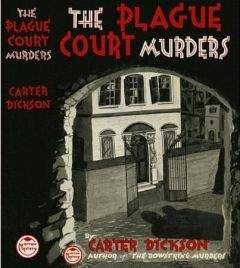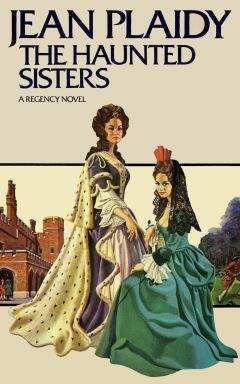Jean Plaidy - To Hold the Crown: The Story of King Henry VII and Elizabeth of York

Скачивание начинается... Если скачивание не началось автоматически, пожалуйста нажмите на эту ссылку.
Жалоба
Напишите нам, и мы в срочном порядке примем меры.
Описание книги "To Hold the Crown: The Story of King Henry VII and Elizabeth of York"
Описание и краткое содержание "To Hold the Crown: The Story of King Henry VII and Elizabeth of York" читать бесплатно онлайн.
Elizabeth was seated in her barge with her sisters and some of her ladies, there were craft of all description on the river that day; moreover people had massed on the banks to witness the progress of the pageant as it sailed along the Thames. The civic companies all had their barges on the river but what gave especial pleasure to the Queen was the presence of the students of Lincoln’s Inn in the Barge of the Bachelors, for they had decided to do honor to the House of Tudor and Elizabeth realized how this would delight the King. He was always gratified by such gestures although he did not show it. But there were those rare occasions when the people seemed really glad to welcome the Tudor; and that was what the Bachelors were doing now for they had erected a red dragon in their barge and on his side was a notice that he was the Red Dragon of Cadwallader. Henry, of course, prided himself in his descent from Cadwallader so this could only be construed as a special tribute to him. The people thoroughly appreciated the dragon and roared with delight as fire spouted from his mouth and fell into the river. Moreover as the Barge of the Bachelors sailed along close to that of the Queen several students strummed their lutes and others sang songs of Wales.
“The King will see that when we approach the Tower,” said the Queen to Cecilia. “It will put him in a good humor.”
“He should already be in that,” said Anne. “He should be pleased because at last it is his Queen’s coronation.”
Poor Anne is a little put out because our mother is not here, thought Elizabeth. But she would have been if she had not angered the King by seeing that foolish priest. The Countess is right, she does interfere too much. And it makes us all unhappy because she is more or less in restraint. It will be good for everyone if this Scottish marriage comes about.
But she was a little sad thinking that she might have to say good-bye to her mother. Theirs had always been a close family and it was hard to remember always that she must not allow her mother to guide her when she had the very excellent Countess to do that.
She must not have sad thoughts on her coronation day so she must remember that if her mother was in her present position it was due to her own fault.
Now she could see the gray walls of the Tower. Soon the King would be greeting her. She would rest in the Tower for the night and from there she would go to Westminster and the ceremony of coronation.
Her sisters were with her when she was dressed for the journey from the Tower to Westminster Palace where she would spend the night and from there, on the next day, go to the Abbey.
She looked beautiful and remarkably like her mother had at her age, except that there was a humility about her that Elizabeth Woodville had never possessed even before she rose to a throne.
Already the crowds were gathering in the streets. The people of London were anxious to see more of her. They had grumbled because, although she was the Queen, they believed the King had contrived to keep her away from them. But it seemed that they had misunderstood. She had become pregnant immediately after her marriage and often ladies did not wish to show themselves in that state and this would seem particularly true of such a modest one as the Queen obviously was. It was not so long since little Arthur had been born, and now she was emerging. They would see her often with the King now, and today they would watch the procession to Westminster Palace and the next day the coronation itself.
There she was in her kirtle of white cloth of gold and her mantle of the same material edged with royal ermine; and her beautiful golden hair was caught in a golden caul and about her brow was a simple gold circlet.
She might not have the perfect features of her mother but she had a warmth which that arrogant lady had lacked. Moreover she managed at the same time to have a look of her royal father and that was enough to endear the people to her.
As she left the Tower her train was carried by her sister Cecilia who, some said, was even more beautiful than the Queen; she certainly had the same golden looks and magnificent long flowing hair. Walking beside the Queen was the King’s uncle Jasper Tudor whom Henry had made Grand Steward, so eager was he to do him honor; and there was Lord Stanley, husband of the Queen’s mother-in-law who had now been created Earl of Derby and whose brother Sir William Stanley had played such a decisive part at the battle of Bosworth by changing sides at the crucial moment. A not very noble act, but it had brought about peace and what the people of London wanted more than anything now was peace.
There might be many staunch Lancastrians but York was represented too. The King had not been so foolish as to leave them out; and even the Duchess of Suffolk was there, which was an indication of how merciful the King could be, for it was her son, John de la Pole, Earl of Lincoln who had sought to set up Lambert Simnel and who had been slain at Stoke.
For the rest of the journey the Queen was to travel by litter and this was brought forward. She sat in it smiling at the people as she passed through the streets under the canopy, which was held by the four knights of the Bath whom Henry had recently created.
It was comforting to Elizabeth to see how the people liked her. They had hung out gaily colored material from their windows; they leaned forward to strew leaves and sweet-smelling herbs in her path; and every now and then the procession was halted while bands of children stepped forward to sing her praises.
It was very gratifying; and tired but exalted, she reached Westminster Palace.
There she could spend a quiet night in preparation for the next day’s ordeal.
Cecilia was with her when they dressed her.
“You look very grand,” she said. “Not like our sister anymore.”
“I am the same beneath all these fine robes, Cecilia.”
Not quite, thought Cecilia. You are the King’s wife now.
Did Elizabeth still remember those dreary days in Sanctuary at the time when Richard had taken the crown, when they had not known from one day to the next what their fate would be? Had she forgotten how even their father had had to fight to keep his crown . . . and that it was always the Lancastrians against whom he fought? Now she was one of them. Of course that had to be and marriage between the two houses was better than war. But Elizabeth seemed to have changed sides. In fact she could see no point of view but that of the King. Had it something to do with the mystic ritual of the marriage bed?
I shall find out, Cecilia told herself. And she knew then that she was going to marry John . . . in secret of course, for to announce her intentions openly would most certainly mean that they would be frustrated.
How beautiful Elizabeth looked in her kirtle of purple velvet edged with ermine with her magnificent hair loose, flowing from the circlet of gold studded with pearls and stones of several colors, which they had placed on her head.
She looks so serene, thought Cecilia, as though coronations were commonplace with her. She has no will of her own, now; only that of her husband and her mother-in-law. They decided what she must do and Elizabeth mildly did it. Perhaps that was a happy state to be in. Elizabeth certainly looked happy. Did she ever think of anything but pleasing her husband, submitting to his embraces in order to do her duty and produce one child after another, for that was how it would be, Cecilia was sure.
They had entered Westminster Hall, there to wait that moment when they would set out for the Abbey. The way from the Hall to the Abbey was carpeted with striped cloth, which the people regarded as their own perquisite, for after the Queen had walked on it they were at liberty to cut off pieces which would then be theirs.
So eager were the people to get their pieces of the material that no sooner had the Queen walked over it with her trainbearers than they dashed forward and started to cut the cloth. The ladies who were following were terrified to find themselves surrounded by the rush of people, shouting, abusing each other and even trampling those who had fallen under foot. Fortunately some of the lords, having seen what was happening, rushed forward to rescue the ladies, which they did just in time.
Cecilia going ahead with the Queen looked back and to her horror saw what was happening. Elizabeth knew something was wrong but she went serenely on. Nothing must mar this day. The King would expect her to play her part like a queen.
Cecilia was deeply disturbed; she knew she would never forget that brief glimpse of those people who were descending on the cloth like so many wild animals.
Every vestige of the cloth had disappeared in a very short time, but those who had fallen in the affray had to be carried away as unobtrusively as possible while in the Abbey the ceremony continued. The King with his mother was watching from an enclosed box between the altar and the pulpit. He had said that he wished to witness the ceremony but in no way did he want to take attention from the Queen.
So was Elizabeth of York crowned Queen of England and so, said many, were the Houses of York and Lancaster entirely united forever.
The company then returned to Westminster Hall where the banquet was to be held. The King and his mother did not join the Queen at table but, as they had in the Abbey, watched the proceedings from an enclosed box.
That, thought Cecilia, was taking it a little far. Was it implied that the people would be so overawed by his presence that they would forget the Queen? She did not think that likely. In fact it seemed clear that although the King was accepted, the Queen’s popularity was greater than his. Perhaps that was why he wished to hide himself.
With the King one could never be sure.
She was certain that she must marry John before the King had knowledge of it, for who knew what devious methods he might employ to prevent it if he knew in advance.
She had persuaded John that if they were to marry they must do so in secret.
“I do not think that I am of such great interest to the King now that my sister has borne him a son,” she insisted.
Lord Wells was deeply enamored of the young Princess, and somewhat surprised that she should feel the same about him. He was not a young man but Cecilia was a serious-minded girl and she was determined to choose her own husband.
He was in favor with the King for his family had always been ardent supporters of the Lancastrian cause. His father had died with the Lancastrian army at Towton and at that time his estates had been confiscated by Edward. John’s elder brother Richard was killed during Warwick’s rising leaving John the heir to the estates should they be released. Edward had been notoriously lenient to his enemies and John somehow came into favor during the years of peace. He was present at the coronation of Richard the Third but had never favored that monarch and had been a firm supporter of Henry for there was a family connection with the Countess of Richmond.
Henry had not forgotten his services when he came to the throne and had given him two castles and several grants of manors; moreover the family estates had been restored to him; he had been given the title of viscount and the King clearly trusted him.
It was for this reason that he believed Henry might not frown too deeply on the marriage once it was accomplished although, as Cecilia said, if his permission were asked it would very likely not be given and then marriage would be quite out of the question.
So Cecilia and he were married secretly and gave themselves up to the joy of being together; but of course the marriage could not remain a secret and Cecilia decided that she would tell her sister and ask her to pass on the news to the King.
Elizabeth was in a very happy mood. The coronation had been a great success; she found the King less formidable than he had seemed at first. He appeared to be growing fond of her. She adored her little Arthur though she saw very little of him; she was less worried about her mother now that a match was proposed for her, and there was an atmosphere of peace and serenity all about her.
Cecilia came to see her. There was a change in her. She seemed as though she were very happy about something, and yet at the same time a little apprehensive.
“I wanted to talk to you . . . as a sister,” she said.
“My dear Cecilia,” replied the Queen, “am I not always your good sister?”
“You look very happy today.”
“I am. Henry was so pleased with the coronation . . . apart from those people who got crushed to death.”
“Imagine risking your life for a piece of cloth!”
“I suppose it meant something more than that to them. Cecilia, Henry has been so generous to me. He has given me a grant of seven lordships and manors.”
“Seven. Why it was seven he took from our mother.”
“Our mother forfeited the right. . . .”
“I know. I know.”
Cecilia looked at her sister intently. “He has given you Waltham . . . has he?”
Elizabeth nodded.
“Waltham, Magna, Badewe, Mashbury. Dunmow, Lighe and Farnham.”
Cecilia began to laugh. “He has given you those which he took from our mother.”
“Why should he not? They were available.”
“No reason at all. But it is all so neat. And it keeps them in the family.”
“I think it is very good of the King.”
“To take them from our mother?”
“Our mother was fortunate. She could have been accused of treason. I consider he has been most generous . . . to us both.”
Cecilia thought: Be careful. Don’t alienate her. You need her help.
“Elizabeth,” she said. “I have something to tell you. I want you to do something for me.”
Elizabeth smiled. She really is a sweet-natured and generous creature, thought Cecilia. I should remember that when I criticize her.
“If it is possible . . .”began Cecilia.
“Tell me.”
“I . . . want you to speak to the King on my behalf.”
Little lights of alarm were in the lovely eyes; they were no longer quite so serene.
“Oh sister, what have you done?”
“I have married.”
“Cecilia!”
“Yes, you may well look shocked. I was determined to marry where I wanted to and I have done it.”
“But . . .”
“I know as the Queen’s sister . . . sister-in-law to the King . . . I should have had his consent. Well, I did not, Elizabeth.”
“But why . . . ?”
“You may well ask. For the simple reason that I feared that consent might not have been given if we asked for it.”
“Who is it?”
“Lord Wells.”
Elizabeth looked faintly relieved. “The King has a good opinion of him.”
“And should have. His family have firmly supported Lancaster for years. Elizabeth, will you please speak to the King for me? Will you plead for us? Tell him that we love each other, that no other will do for us, and that he must approve of what we have done.”
Elizabeth was uneasy. The King was not going to like this, and she was to be the one to tell him. How could Cecilia? Why did she not wait? She had always been so firm in her opinions; it had never been possible to shift her from them—for Elizabeth at least.
Подписывайтесь на наши страницы в социальных сетях.
Будьте в курсе последних книжных новинок, комментируйте, обсуждайте. Мы ждём Вас!
Похожие книги на "To Hold the Crown: The Story of King Henry VII and Elizabeth of York"
Книги похожие на "To Hold the Crown: The Story of King Henry VII and Elizabeth of York" читать онлайн или скачать бесплатно полные версии.
Мы рекомендуем Вам зарегистрироваться либо войти на сайт под своим именем.
Отзывы о "Jean Plaidy - To Hold the Crown: The Story of King Henry VII and Elizabeth of York"
Отзывы читателей о книге "To Hold the Crown: The Story of King Henry VII and Elizabeth of York", комментарии и мнения людей о произведении.
















